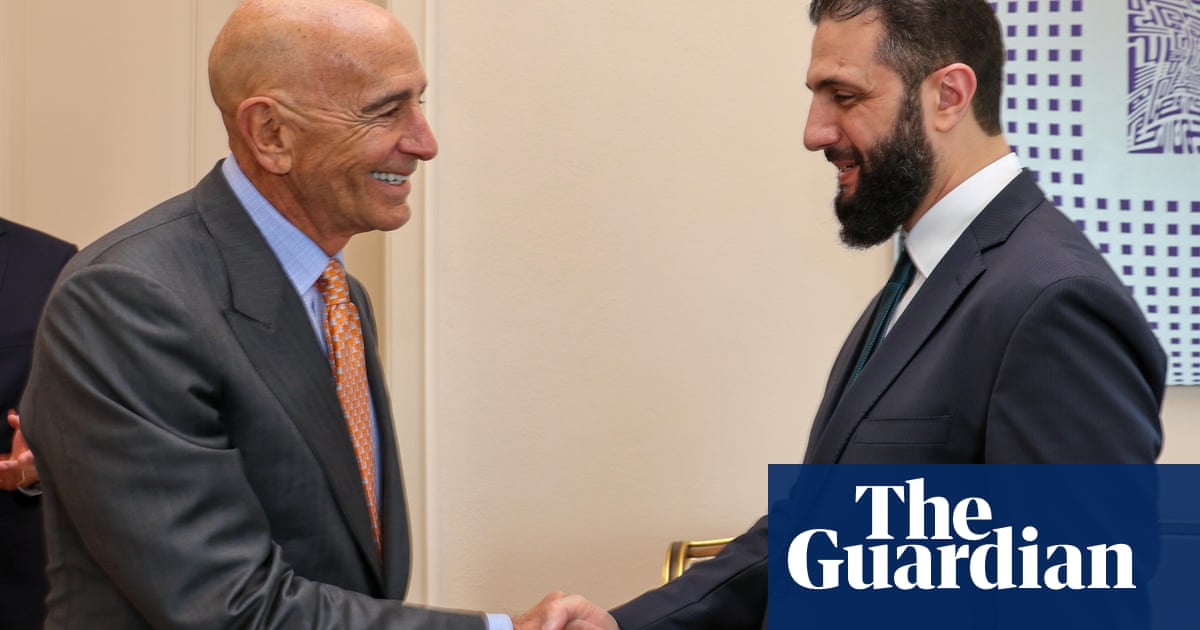Donald Trump’s old friend Thomas Barrack, now serving as the US ambassador to Turkey and special envoy for Syria, praised Syria’s interim president, Ahmed al-Sharaa, aftera meeting in Istanbulon Saturday.
“I stressed the cessation of sanctions against Syria will preserve the integrity of our primary objective – the enduring defeat of ISIS – and will give the people of Syria a chance for a better future,” Barrack said ina statement, referring to actions taken on Friday by the Trump administration totemporarily suspend sanctionsimposed on the government of the former president, Bashar al-Assad, who was deposed by rebel forces led by Sharaa late last year.
Syria had been under US sanctions since 1979, which intensified after 2011’s deadly crackdown on peaceful protesters by Assad.
“I also commended President al-Sharaa on taking meaningful steps towards enacting President Trump’s points on foreign terrorist fighters, counter-ISIS measures, relations with Israel, and camps and detention centers,” Barrack added.
Those conditions put Sharaa in the position of cracking down on his former allies. Sharaa, an Islamist rebel, initially came to Syria from Iraq to fight Assad with the support of the Islamic State, but later broke with the group and pledged allegiance to al-Qaida. He broke with al-Qaida as well, in 2016.
His militant group, the al-Nusra Front, rebranded twice, becoming Hayat Tahrir al-Sham, or HTS, in 2017. HTS was designated a terrorist organization by the United States.
“President al-Sharaa praised America’s fast action on lifting sanctions,” Trump’s envoy reported after the talks on Saturday.
“This meeting was historic, putting the issue of sanctions – as President Trump has indicated – far behind us, and resulting in joint commitment of both our countries to drive forward, quickly, with investment, development, and worldwide branding of a new, welcoming Syria without sanctions.”
Among the projects now possible isa Trump Tower Damascus, proposed as part of an effort to entice the US president into removing sanctions. Trump himself appears to have been impressed by a recent meeting with al-Sharaa in Saudi Arabia; the US presidenttold reportersthat the former commander of al-Qaida’s franchise in Syria was a “young, attractive guy, tough guy, you know. Strong past. Very strong past. Fighter.”
Barrack, who wasindictedby the justice department in 2021 and charged with “unlawful efforts to advance the interests of the United Arab Emirates” during the first Trump administration, wasacquittedof all charges after a federal trial in 2022.
